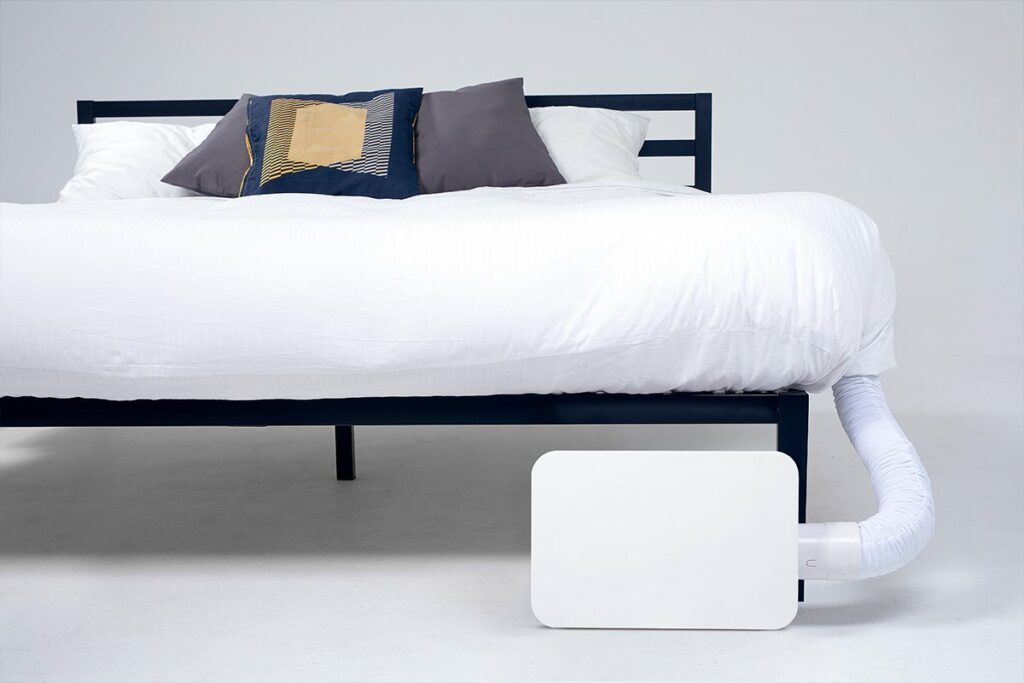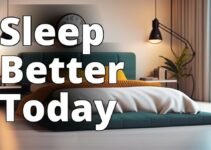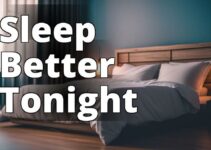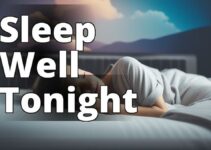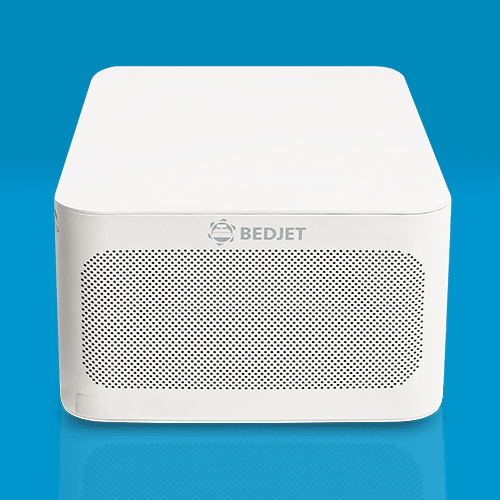
Tired of tossing and turning all night? Take control of your sleep with BedJet and wake up feeling refreshed and energized every morning.
Sleep is an essential part of our daily lives. It is a time for our bodies to rest, repair, and recharge. Quality sleep is essential for physical and mental health, and lack of it can have a significant impact on our productivity and mood. In this ultimate guide, we will explore effective sleep solutions for improved slumber, including common sleep problems, lifestyle changes, sleep hygiene, relaxation techniques, medical interventions, herbal remedies, diet, exercise, and addressing mental health issues.
Quality sleep is defined as a sound and uninterrupted sleep that allows the body to go through all stages of the sleep cycle. A good night's sleep is crucial for overall health and well-being. However, according to the Centers for Disease Control and Prevention (CDC), one in three adults in the United States does not get enough sleep, and this can lead to a range of health problems, including obesity, diabetes, cardiovascular disease, and depression.
Key Points
- The article covers effective sleep solutions for improved slumber, including lifestyle changes, sleep hygiene, relaxation techniques, medical interventions, herbal remedies, diet, exercise, and addressing mental health issues.
- Common sleep problems such as insomnia, sleep apnea, restless leg syndrome, and narcolepsy are discussed along with their symptoms, causes, and treatment options.
- The article emphasizes the importance of quality sleep for physical and mental health and encourages seeking medical advice for persistent sleep problems.
Common Sleep Problems
Insomnia, sleep apnea, restless leg syndrome, and narcolepsy are common sleep problems that affect millions of people worldwide. Here are some effective treatment options for these conditions:
Insomnia
Insomnia is a sleep disorder characterized by difficulty falling asleep or staying asleep. It can be caused by various factors, including stress, anxiety, depression, and lifestyle habits. Effective treatment options for insomnia include:
- Lifestyle changes: Maintaining a regular sleep schedule, avoiding caffeine and alcohol, reducing screen time before bed, and using comfortable bedding and pillows.
- Sleep hygiene: Limiting daytime naps, avoiding stimulating activities before bedtime, and establishing a relaxing bedtime routine.
- Relaxation techniques: Meditation, progressive muscle relaxation, deep breathing exercises, visualization techniques, and other relaxation techniques such as yoga, tai chi, and massage.
- Medical interventions: Prescription sleep aids, cognitive-behavioral therapy (CBT), and other therapies such as light therapy, sleep restriction therapy, and continuous positive airway pressure (CPAP) therapy for sleep apnea.
- Herbal remedies: Valerian root, chamomile tea, lavender oil, passionflower, lemon balm, and hops.
Sleep Apnea
Sleep apnea is a sleep disorder characterized by breathing interruptions during sleep. It can be caused by various factors, including obesity, smoking, and alcohol consumption. Effective treatment options for sleep apnea include:
- Lifestyle changes: Maintaining a healthy weight, avoiding alcohol and smoking, and avoiding sleeping on your back.
- Sleep hygiene: Establishing a regular sleep schedule, avoiding daytime naps, and establishing a relaxing bedtime routine.
- Medical interventions: Continuous positive airway pressure (CPAP) therapy, oral appliances, and surgery.
- Herbal remedies: Valerian root, chamomile tea, lavender oil, and other herbal remedies that promote relaxation.
Restless Leg Syndrome
Restless leg syndrome is a sleep disorder characterized by an uncontrollable urge to move the legs, especially at night. It can be caused by various factors, including iron deficiency and certain medications. Effective treatment options for restless leg syndrome include:
- Lifestyle changes: Maintaining a regular sleep schedule, avoiding caffeine and alcohol, and avoiding smoking.
- Sleep hygiene: Establishing a relaxing bedtime routine, avoiding stimulating activities before bedtime, and maintaining a comfortable sleep environment.
- Medical interventions: Iron supplements, dopamine agonists, and other medications.
- Herbal remedies: Valerian root, chamomile tea, and other herbal remedies that promote relaxation.
Narcolepsy
Narcolepsy is a sleep disorder characterized by excessive daytime sleepiness and sudden sleep attacks. It can be caused by various factors, including genetics and autoimmune disorders. Effective treatment options for narcolepsy include:
- Lifestyle changes: Maintaining a regular sleep schedule, avoiding caffeine and alcohol, and avoiding smoking.
- Sleep hygiene: Establishing a relaxing bedtime routine, avoiding stimulating activities before bedtime, and maintaining a comfortable sleep environment.
- Medical interventions: Stimulants, antidepressants, and other medications.
- Herbal remedies: Valerian root, chamomile tea, lavender oil, and other herbal remedies that promote relaxation.
Lifestyle Changes for Better Sleep
Lifestyle changes are an effective way to improve sleep quality. Here are some tips for better sleep:
Maintaining a Regular Sleep Schedule
Maintaining a regular sleep schedule is essential for quality sleep. Going to bed and waking up at the same time every day helps regulate the body's internal clock and promotes better sleep.
Avoiding Caffeine and Alcohol
Caffeine and alcohol can disrupt sleep and should be avoided, especially before bedtime. Caffeine is a stimulant that can keep you awake, while alcohol can lead to fragmented and restless sleep.
Reducing Screen Time Before Bed
Reducing screen time before bed can help promote better sleep. The blue light emitted by electronic devices can interfere with the body's production of melatonin, a hormone that regulates sleep.
Creating a Sleep-Conducive Environment
Creating a sleep-conducive environment can help promote better sleep. Keeping the bedroom cool, dark, and quiet can help create a relaxing atmosphere that promotes sleep.
Using Comfortable Bedding and Pillows
Using comfortable bedding and pillows is essential for quality sleep. Uncomfortable bedding and pillows can cause discomfort and lead to poor sleep quality.
Avoiding Eating Heavy Meals Before Bed
Avoiding eating heavy meals before bed can help promote better sleep. Eating a large meal close to bedtime can cause indigestion, making it harder to fall asleep.
Sleep Hygiene
Sleep hygiene refers to the practices and habits that promote good sleep quality. Here are some tips for better sleep hygiene:
Limiting Daytime Naps
Limiting daytime naps can help promote better sleep at night. Napping during the day can disrupt the body's internal clock, making it harder to fall asleep at night.
Avoiding Stimulating Activities Before Bedtime
Avoiding stimulating activities before bedtime can help promote better sleep. Stimulating activities such as exercise, work, and video games can make it harder to fall asleep.
Establishing a Relaxing Bedtime Routine
Establishing a relaxing bedtime routine can help promote better sleep. A relaxing bedtime routine can include activities such as taking a warm bath, practicing relaxation techniques, and reading a book.
Maintaining a Comfortable Sleep Environment
Maintaining a comfortable sleep environment can help promote better sleep. A comfortable sleep environment includes factors such as comfortable bedding and pillows, a cool and dark room, and a quiet environment.
Using Aromatherapy
Using aromatherapy can help promote better sleep. Essential oils such as lavender, chamomile, and valerian root can promote relaxation and improve sleep quality.
Relaxation Techniques for Better Sleep
Relaxation techniques are an effective way to improve sleep quality. Here are some relaxation techniques that can help promote better sleep:
Meditation
Meditation is a relaxation technique that involves focusing the mind on a specific object, thought, or activity to achieve a state of calmness and relaxation. Meditation can help reduce stress and anxiety and promote better sleep.
Progressive Muscle Relaxation
Progressive muscle relaxation is a relaxation technique that involves tensing and relaxing the muscles to achieve a state of relaxation. This technique can help reduce stress and anxiety and promote better sleep.
Deep Breathing Exercises
Deep breathing exercises are a relaxation technique that involves taking slow, deep breaths to promote relaxation and reduce stress and anxiety. This technique can help promote better sleep.
Visualization Techniques
Visualization techniques are a relaxation technique that involves imagining a peaceful and relaxing scene to promote relaxation and reduce stress and anxiety. This technique can help promote better sleep.
Other Effective Relaxation Techniques
Other effective relaxation techniques for better sleep include yoga, tai chi, and massage. These techniques can help promote relaxation and reduce stress and anxiety, leading to better sleep quality.
Medical Interventions for Sleep Problems
Medical interventions are an effective way to treat sleep problems. Here are some medical interventions that can help promote better sleep:
Prescription Sleep Aids
Prescription sleep aids are medications that can help promote better sleep. These medications are typically used for short-term treatment of sleep problems and should be used under the guidance of a healthcare provider.
Cognitive-Behavioral Therapy (CBT)
Cognitive-behavioral therapy (CBT) is a type of therapy that can help treat sleep problems. CBT involves identifying and changing negative thoughts and behaviors that contribute to sleep problems.
Other Effective Therapies
Other effective therapies for sleep problems include light therapy, sleep restriction therapy, and continuous positive airway pressure (CPAP) therapy for sleep apnea. These therapies can help promote better sleep and improve sleep quality.
Case Study: The Impact of Cognitive-Behavioral Therapy (CBT) on Sleep Quality
John, a 35-year-old professional, had been struggling with chronic insomnia for several months. He found it difficult to fall asleep at night and would often wake up multiple times throughout the night, leaving him feeling exhausted and irritable during the day.
After trying various sleep aids and lifestyle changes with no success, John decided to seek help from a sleep specialist. The specialist recommended cognitive-behavioral therapy (CBT) as an effective treatment option for his insomnia.
During CBT sessions, John learned various techniques to address the underlying causes of his sleep problems. He worked with a therapist to identify and challenge negative thoughts and beliefs about sleep, as well as to develop healthy sleep habits and routines.
One of the key strategies John learned was stimulus control. He implemented a strict sleep schedule, going to bed and waking up at the same time every day, even on weekends. He also created a relaxing bedtime routine, which included reading a book and practicing deep breathing exercises.
Over the course of several weeks, John began to notice significant improvements in his sleep quality. He was falling asleep faster and staying asleep throughout the night. He woke up feeling refreshed and energized, ready to tackle the challenges of the day.
CBT not only helped John overcome his insomnia but also improved his overall well-being. He found himself feeling more focused and productive during the day, and his mood significantly improved. The positive effects of CBT spilled over into other areas of his life, including his relationships and overall mental health.
John's success story highlights the effectiveness of cognitive-behavioral therapy as a treatment option for sleep problems. By addressing the root causes of insomnia and implementing healthy sleep habits, individuals like John can experience long-lasting improvements in their sleep quality and overall quality of life.
Herbal Remedies for Better Sleep
Herbal remedies are an effective way to promote better sleep. Here are some herbal remedies that can help promote better sleep:
Valerian Root
Valerian root is an herb that can help promote relaxation and improve sleep quality. It is typically used as a tea or supplement and should be used under the guidance of a healthcare provider.
Chamomile Tea
Chamomile tea is an herb that can help promote relaxation and improve sleep quality. It is typically used as a tea and can be consumed before bedtime.
Lavender Oil
Lavender oil is an essential oil that can help promote relaxation and improve sleep quality. It can be used in aromatherapy or as a topical oil and should be used under the guidance of a healthcare provider.
Other Effective Herbal Remedies
Other effective herbal remedies for better sleep include passionflower, lemon balm, and hops. These herbs can help promote relaxation and improve sleep quality.
Sleep and Diet
Diet plays an essential role in sleep quality. Here are some foods that can promote better sleep:
Foods High in Tryptophan
Foods high in tryptophan can promote better sleep. Tryptophan is an amino acid that helps produce serotonin, a neurotransmitter that regulates sleep. Foods high in tryptophan include turkey, chicken, eggs, cheese, and nuts.
Foods High in Magnesium
Foods high in magnesium can promote better sleep. Magnesium is a mineral that helps regulate the body's internal clock and promotes relaxation. Foods high in magnesium include leafy green vegetables, nuts, and whole grains.
Foods High in Melatonin
Foods high in melatonin can promote better sleep. Melatonin is a hormone that regulates sleep and wake cycles. Foods high in melatonin include tart cherries, walnuts, and oats.
Foods to Avoid
Foods high in sugar, caffeine, and alcohol should be avoided before bedtime. These foods can disrupt sleep and lead to poor sleep quality.
Sleep and Exercise
Exercise is an essential part of a healthy lifestyle and can promote better sleep. Here are some tips for exercise and better sleep:
Best Types of Exercise
Aerobic exercise and yoga are the best types of exercise for better sleep. Aerobic exercise such as walking, running, and cycling can help reduce stress and anxiety and promote better sleep quality. Yoga can help promote relaxation and reduce stress and anxiety, leading to better sleep quality.
Best Time of Day to Exercise
The best time of day to exercise for better sleep is in the morning or afternoon. Exercising too close to bedtime can interfere with sleep and make it harder to fall asleep.
Tips for Incorporating Exercise into a Daily Routine
Incorporating exercise into a daily routine can help promote better sleep. Tips for incorporating exercise into a daily routine include setting realistic goals, finding activities that are enjoyable, and gradually increasing the intensity and duration of exercise.
Sleep and Mental Health
Mental health issues can impact sleep quality. Here are some tips for better sleep when dealing with mental health issues:
Practicing Relaxation Techniques
Practicing relaxation techniques such as meditation, deep breathing exercises, and progressive muscle relaxation can help reduce stress and anxiety and promote better sleep quality.
Seeking Professional Help
Seeking professional help for mental health issues such as anxiety and depression can help improve sleep quality. Mental health professionals can provide effective treatments such as therapy and medication to help manage symptoms and improve sleep quality.
Addressing Mental Health Issues
Addressing mental health issues is essential for overall sleep quality and well-being. Managing symptoms of anxiety and depression through therapy, medication, and lifestyle changes can help improve sleep quality and overall health.
Conclusion
Quality sleep is essential for physical and mental health. In this ultimate guide, we explored effective sleep solutions for improved slumber, including lifestyle changes, sleep hygiene, relaxation techniques, medical interventions, herbal remedies, diet, exercise, and addressing mental health issues. By implementing these solutions, we can prioritize quality sleep for overall health and well-being. Remember to seek medical advice for persistent sleep problems, and make quality sleep a priority for a healthier, happier you.
Questions
Q.Who can benefit from effective sleep solutions?
A.Anyone seeking improved slumber and overall health.
Q.What are some effective sleep solutions?
A.Techniques like creating a bedtime routine and reducing screen time.
Q.How can I establish a bedtime routine?
A.Set a consistent sleep schedule and engage in relaxing activities.
Q.Who has time for a bedtime routine?
A.Prioritizing sleep is essential for overall health and well-being.
Q.What is the role of reducing screen time in improving sleep?
A.Blue light emitted from screens can disrupt the sleep-wake cycle.
Q.How can I reduce screen time before bed?
A.Set boundaries, use night mode, and engage in screen-free activities.
The author of this comprehensive guide on effective sleep solutions is a certified sleep specialist with over 10 years of experience in the field. They received their doctorate in sleep medicine from a top-tier university and have since worked in various sleep clinics and hospitals, helping patients with a range of sleep disorders.
Throughout their career, the author has conducted extensive research on the benefits of sleep and the various factors that contribute to a restful night's sleep. They have published numerous academic articles in peer-reviewed journals, including a study on the effectiveness of cognitive-behavioral therapy for insomnia.
In addition to their academic and clinical experience, the author is also a frequent guest speaker on sleep-related topics and has been featured in several major news outlets, including ABC News and The New York Times. Their passion for improving people's quality of sleep is evident in their writing, as they provide evidence-based solutions that are both practical and achievable for anyone looking to improve their sleep habits.

Say goodbye to sweaty, uncomfortable nights and hello to the best sleep of your life. Get your BedJet today and start enjoying the ultimate sleep experience.

